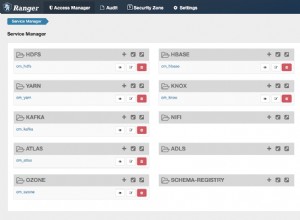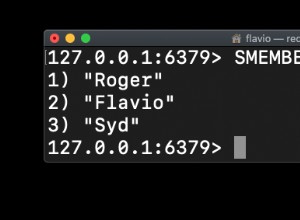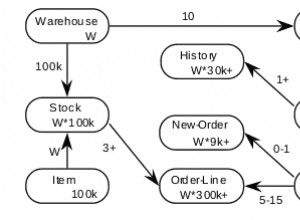Não há nenhum comando embutido para isso - suas opções são puxar as duas listas e realizar a comparação (para diff) no cliente, ou escrever um script Lua que é executado com o
EVAL comando para executá-lo no lado do servidor. Aqui está um exemplo para tal script:--[[
LDIFF key [key ...]
Returns the elements in the first list key that are also present in all other
keys.
]]--
-- A utility function that converts an array to a table
local function a2t(a)
local t = {}
for i, v in ipairs(a) do
t[v] = true
end
return t
end
-- A utility function that converts a table to an array
local function t2a(t)
local a = {}
for k, _ in pairs(t) do
a[#a+1] = k
end
return a
end
-- main
local key = table.remove(KEYS,1)
local elems = a2t(redis.call('LRANGE', key, 0, -1))
-- iterate remaining keys
while #KEYS > 0 do
key = table.remove(KEYS,1)
local check = a2t(redis.call('LRANGE', key, 0, -1))
-- check each element in the current key for existence in the first key
for k, _ in pairs(elems) do
if check[k] then
elems[k] = nil
end
end
end
-- convert the table to an array and reply
return t2a(elems)
Executando isso com
redis-cli se parece com isso:$ redis-cli LPUSH key1 value1 value2 value3
(integer) 3
$ redis-cli LPUSH key2 value1 value3 value4
(integer) 3
$ redis-cli --eval ldiff.lua key1 key2
1) "value2"




